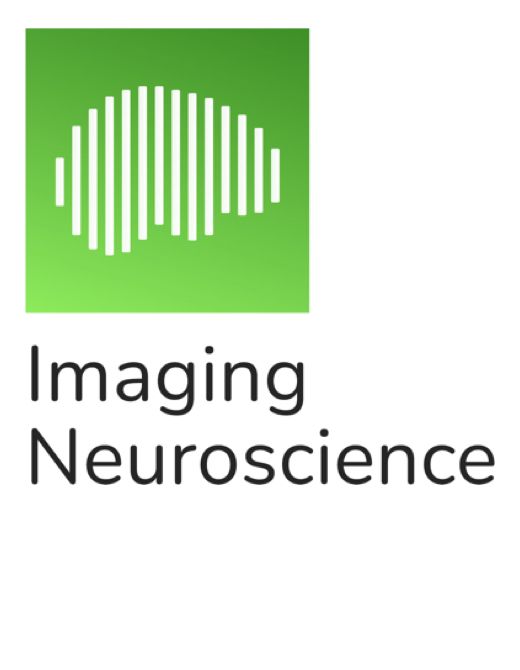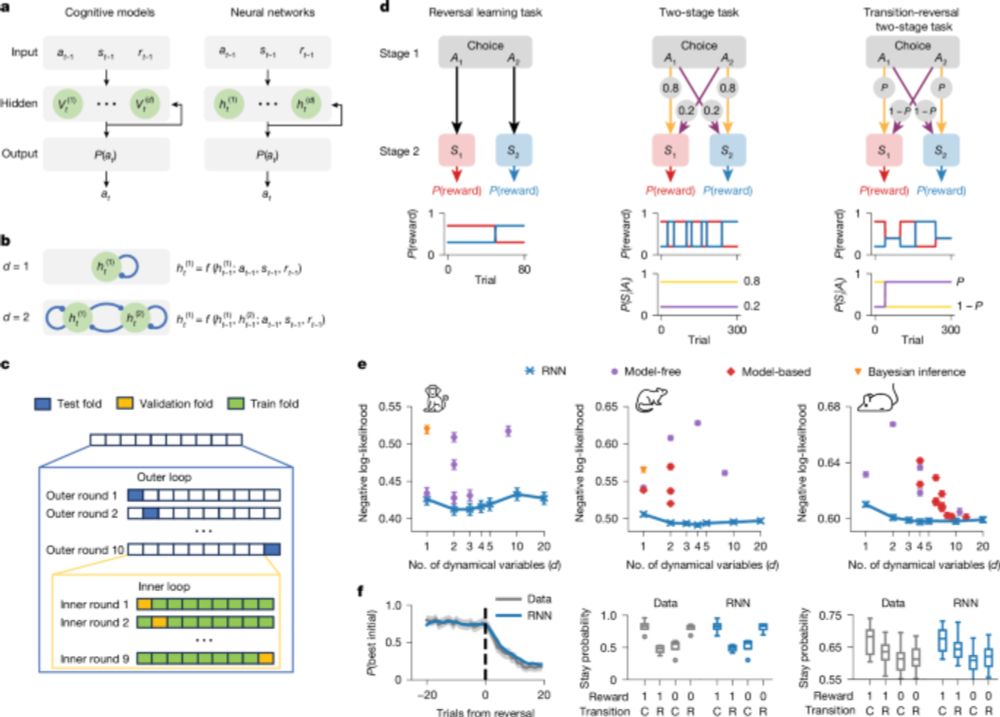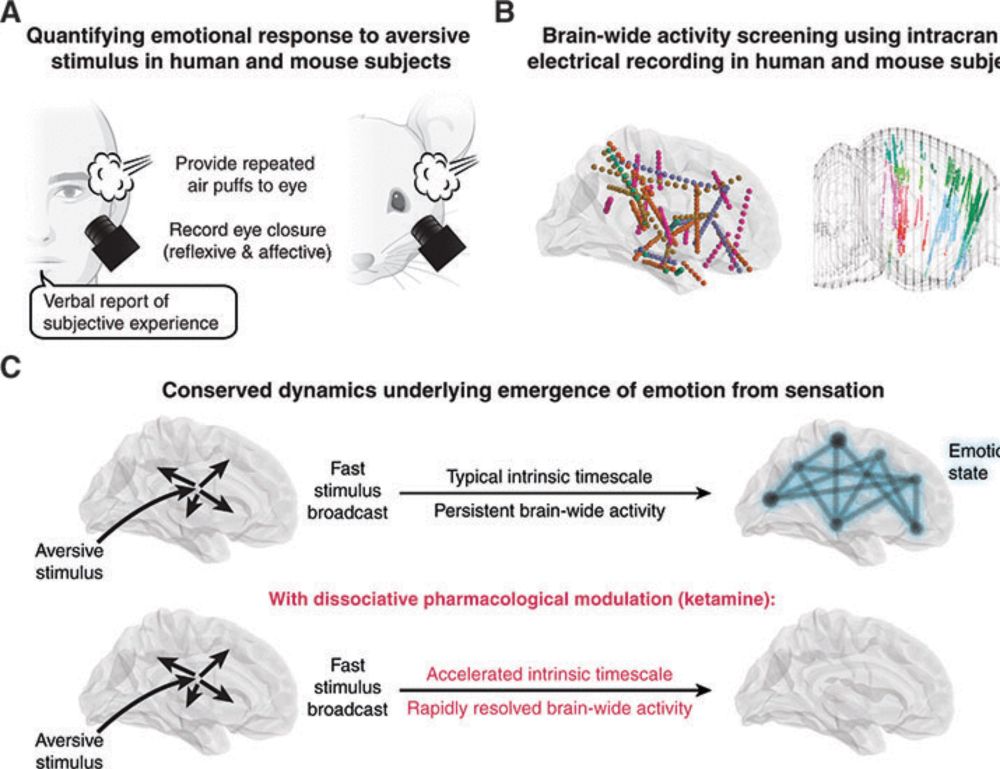We're a month further into the job market - how are things looking? The good news is that the market does seem to have been delayed: ~150 new listings have appeared since my last post. The bad news is that the total is still substantially lower than what it was during the covid dip.
03.10.2025 17:25 — 👍 47 🔁 20 💬 2 📌 2
APA PsycNet
Paper and R package for (more flexible) power analysis in multilevel: psycnet.apa.org/record/2024-...
03.10.2025 16:02 — 👍 10 🔁 4 💬 0 📌 0
As our lab started to build encoding 🧠 models, we were trying to figure out best practices in the field. So @neurotaha.bsky.social
built a library to easily compare design choices & model features across datasets!
We hope it will be useful to the community & plan to keep expanding it!
1/
29.09.2025 17:33 — 👍 30 🔁 6 💬 1 📌 0
“As AI tools become more capable, funding agencies and institutions may question why labs need dedicated computational staff. But these examples suggest the roles will become more important, not less”
24.09.2025 06:04 — 👍 3 🔁 2 💬 0 📌 0

New Open dataset alert:
🧠 Introducing "Spacetop" – a massive multimodal fMRI dataset that bridges naturalistic and experimental neuroscience!
N = 101 x 6 hours each = 606 functional iso-hours combining movies, pain, faces, theory-of-mind and other cognitive tasks!
🧵below
04.09.2025 19:21 — 👍 116 🔁 58 💬 3 📌 3
Semantic Distance fMRI: Analyses, Psycholinguistic Correlations
How to compute surprisal (Shannon Information) for every word in your language sample. Then --- correlate surprisal with other major lexical-semantic variables (concreteness, semantic neighborhoods, freq). reilly-lab.github.io/Surprisal.html
22.08.2025 14:14 — 👍 26 🔁 7 💬 1 📌 0
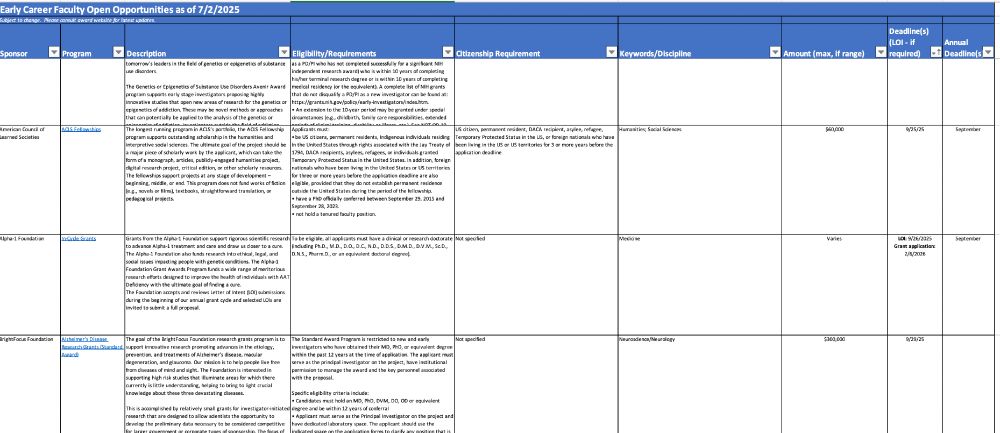
These are the most challenging times for early-career scientists and engineers.
My team is doing its bit to help by maintaining and even expanding our database of funding opportunities for early-career researchers.
We found 437 of them.
Download it freely here: research.jhu.edu/rdt/funding-...
11.08.2025 11:54 — 👍 312 🔁 200 💬 6 📌 3
PNAS
Proceedings of the National Academy of Sciences (PNAS), a peer reviewed journal of the National Academy of Sciences (NAS) - an authoritative source of high-impact, original research that broadly spans...
🔖 NEW PAPER ALERT 🔖 Out in PNAS – we used equation discovery algorithms to improve models of human reinforcement learning.
Led by the wonderful Kyle Lafollette with an amazing team Yanni Yuval @roeyschurr.bsky.social and @d-melnikoff.bsky.social
www.pnas.org/doi/epdf/10....
01.08.2025 07:20 — 👍 46 🔁 14 💬 0 📌 1
Our conversation analysis software is now on CRAN! Reach out with any questions. We hope it’s useful for all you language and social interaction folks out there.
22.07.2025 18:44 — 👍 39 🔁 15 💬 2 📌 0

"We propose a unified quantitative model that integrates decision-making and communication, revealing how verbal framing of probabilistic expression both reflects and shapes beliefs in speakers and listeners."
Read more here:
www.sciencedirect.com/science/arti...
22.07.2025 17:53 — 👍 1 🔁 2 💬 0 📌 0
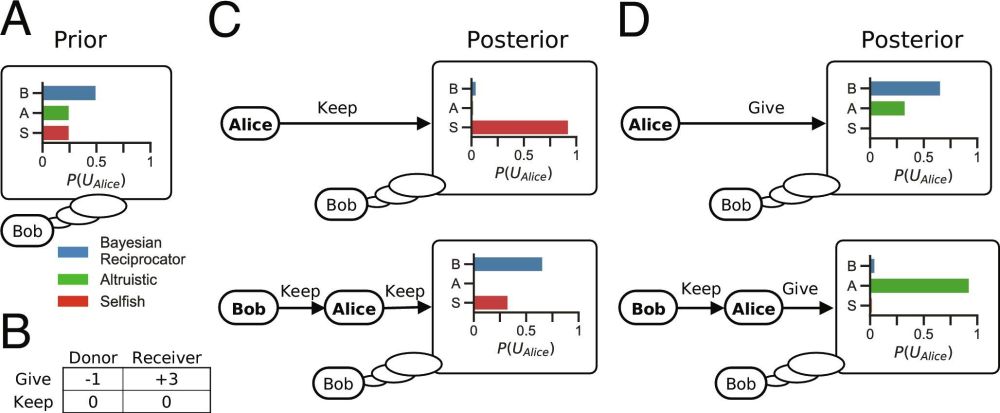
Evolving general cooperation with a Bayesian theory of mind | PNAS
Theories of the evolution of cooperation through reciprocity explain how unrelated
self-interested individuals can accomplish more together than th...
Our new paper is out in PNAS: "Evolving general cooperation with a Bayesian theory of mind"!
Humans are the ultimate cooperators. We coordinate on a scale and scope no other species (nor AI) can match. What makes this possible? 🧵
www.pnas.org/doi/10.1073/...
22.07.2025 06:03 — 👍 92 🔁 36 💬 2 📌 2
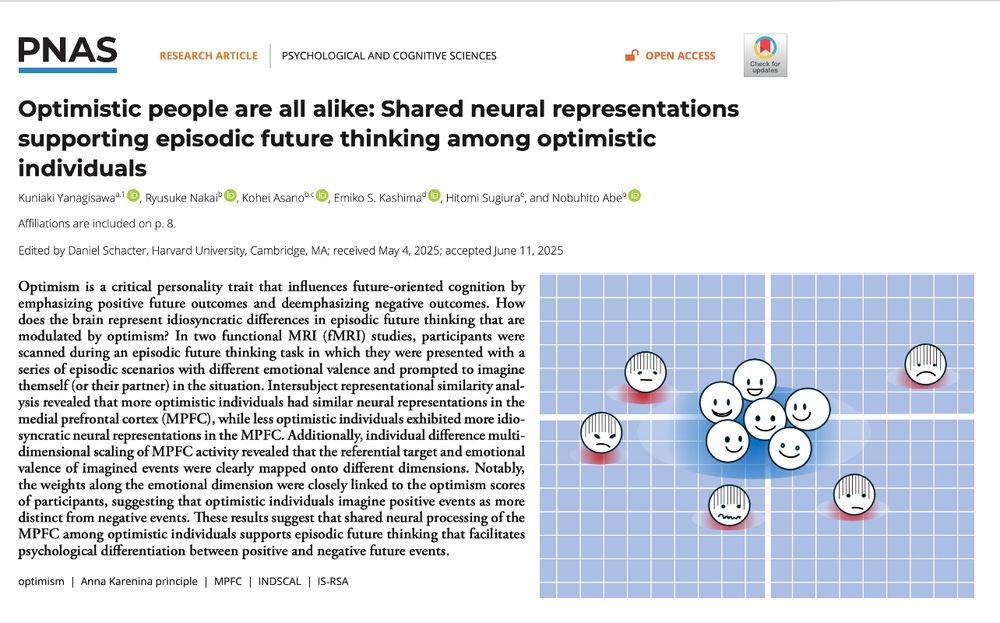
Optimistic people have functional MRI commonality of neural processing for imagining the future (whereas pessimists have a diverse pattern)
www.pnas.org/doi/epdf/10....
21.07.2025 19:26 — 👍 262 🔁 43 💬 14 📌 11
Complexity Group Email List | Brain Inspired
Been really enjoying the Complexity Science Discussion Group hosted by Paul Middlebrooks, where we're working our way through the Santa Fe Institute's "Classic Papers in Complexity Science". The group is open for anyone interested:
braininspired.co/complexity-g...
19.07.2025 15:14 — 👍 89 🔁 26 💬 7 📌 3
ConversationAlign
Reads conversation transcripts into R, cleans and formats them, and yokes user-specified psycholinguistic database values to each word. ConversationAlign computes alignment indices between two interlo...
Major updates to our ConversationAlign R package - submitted to CRAN and JOSS today. If you're interested in computing alignment and main effects for >40 psycholinguistic dimensions in naturalistic conversation, this is the package for you reilly-conceptscognitionlab.github.io/Conversation...
10.07.2025 01:53 — 👍 28 🔁 10 💬 1 📌 0

Disagreement drives metacognitive development
Metacognition improves significantly over childhood, but the mechanisms underlying this development are poorly understood. We first review recent rese…
Check out our new TICS paper on disagreement and metacognition! We argue that disagreement drives metacognitive development by expanding children's consideration sets.
With Antonia Langenhoff, Bill Thompson @wdt.bsky.social and Mahesh Srinivasan
www.sciencedirect.com/science/arti...
19.06.2025 10:12 — 👍 19 🔁 15 💬 0 📌 0
What a fantastic resource! Super valuable for those of us teaching experimental methods for undergrads (not to mention staying crystal clear on our own procedures) 👇
01.07.2025 23:08 — 👍 6 🔁 1 💬 0 📌 0
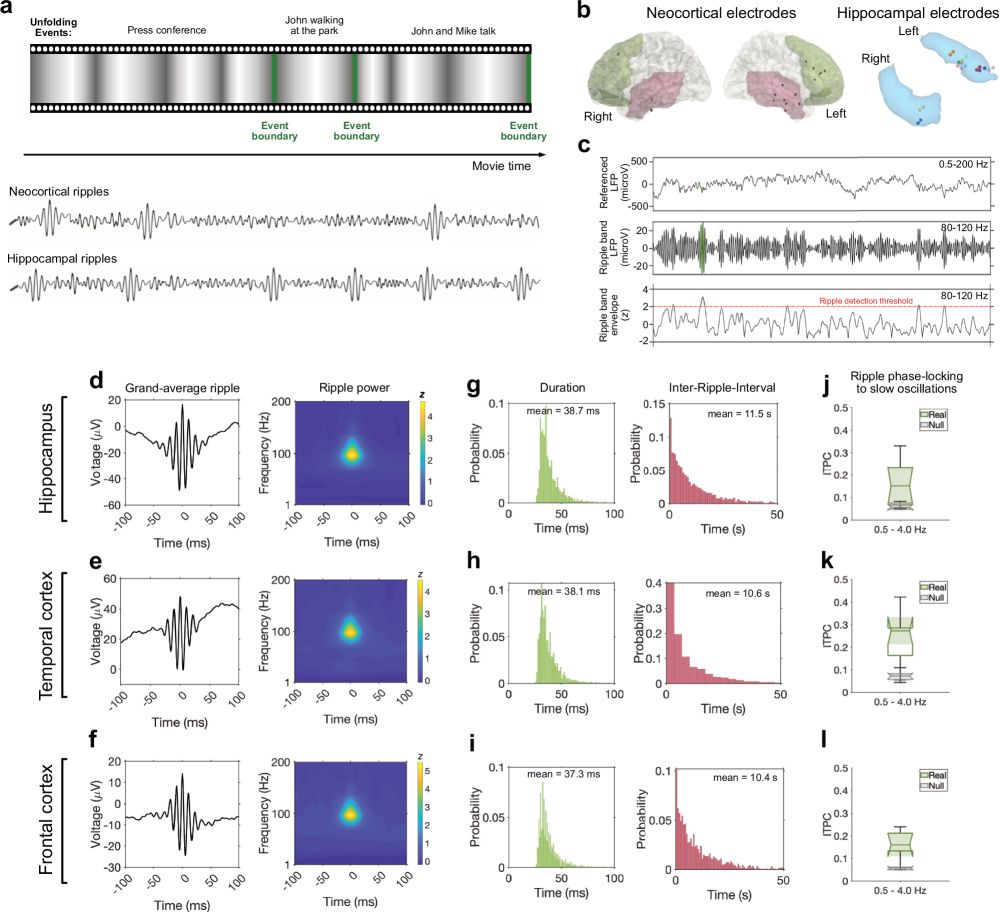
Movie-watching evokes ripple-like activity within events and at event boundaries
Nature Communications - The neural processes involved in memory formation for realistic experiences remain poorly understood. Here, the authors found that ripple-like activity in the human...
🧠 Paper out!
We investigated how hippocampal and cortical ripples support memory during movie watching. We found that:
🎬 Hippocampal ripples mark event boundaries
🧩 Cortical ripples predict later recall
Ripples may help transform real-life experiences into lasting memories!
rdcu.be/eui9l
01.07.2025 13:26 — 👍 153 🔁 67 💬 8 📌 2
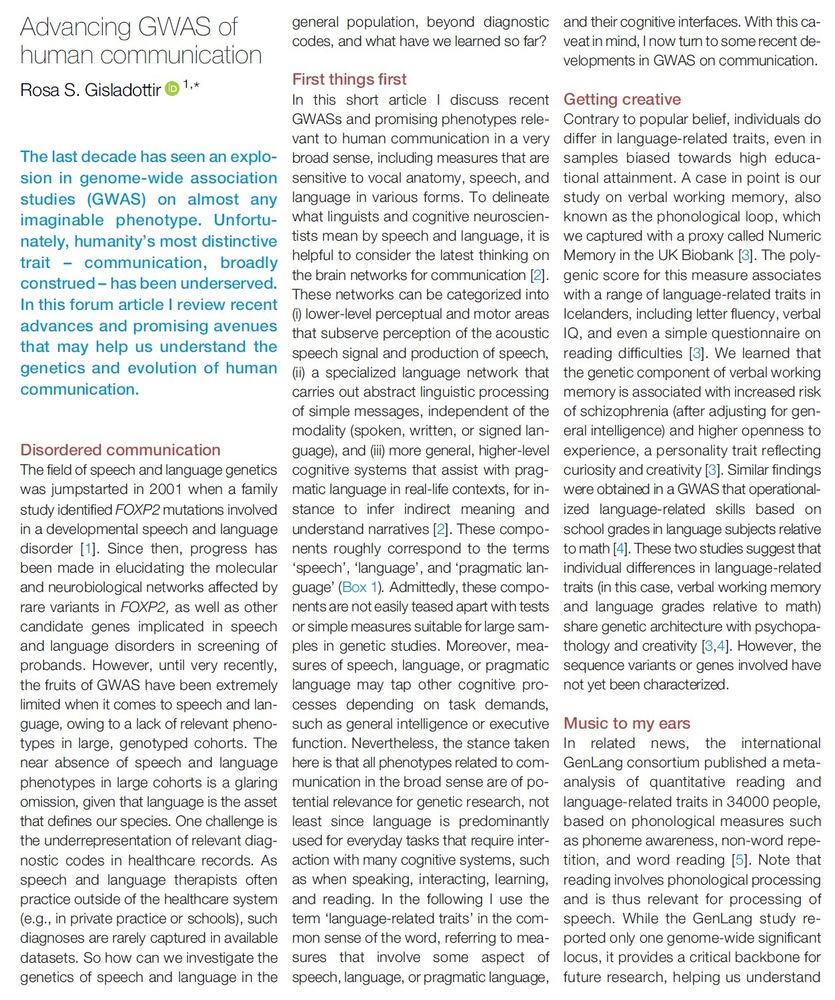
A screenshot of the first page of a newly published forum article entitled "Advancing GWAS of human communication" authored by Rosa S. Gisladottir in the journal Trends in Genetics. The abstract reads as follows:
The last decade has seen an explosion in genome-wide association studies (GWAS) on almost any imaginable phenotype. Unfortunately, humanity’s most distinctive trait – communication, broadly construed – has been underserved. In this forum article I review recent advances and promising avenues that may help us understand the genetics and evolution of human communication.
Highly recommend this superb forum article on genomics of human communication traits, free to read in @cp-trendsgenetics.bsky.social. Beautifully succinct & accessible overview by @rosagisladottir.bsky.social on where the field is now & where it's heading. 🗣️💬🧠🧬🧪
www.sciencedirect.com/science/arti...
21.06.2025 14:53 — 👍 43 🔁 17 💬 2 📌 2
Friends writing a paper you're going to cite for years is a cause for celebration!
@elisabaek.bsky.social @rzhprfshr.bsky.social & @joebayer.bsky.social map how social connection is defined & measured, point to their false equivalencies + consider how media/constant connectivity changes things ♥️
20.06.2025 16:08 — 👍 11 🔁 4 💬 1 📌 0
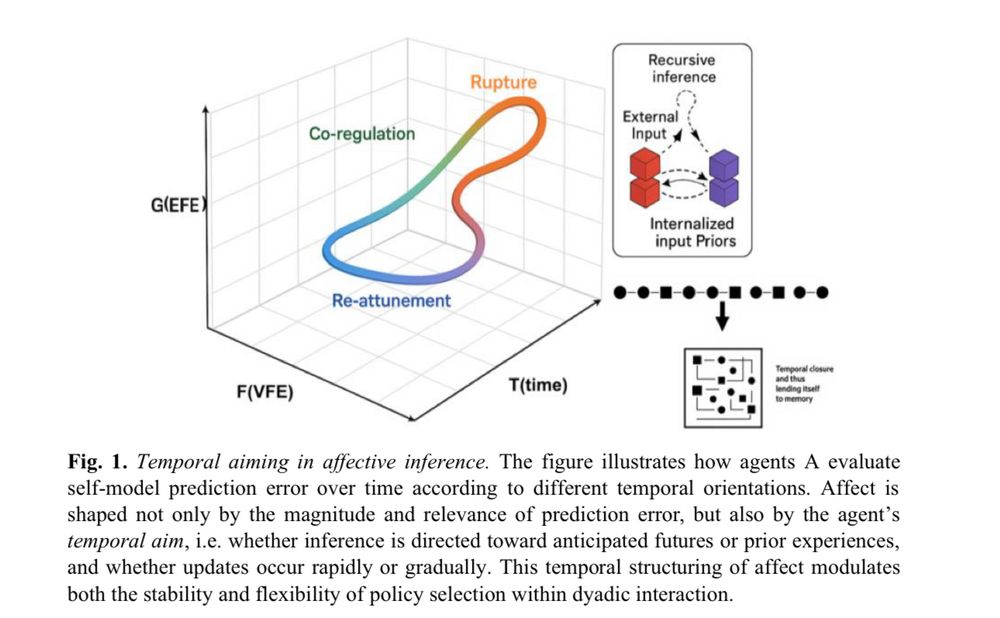
If you fancy the idea that emotions are inferences we make together, have a read and fire back with critiques, questions, or priors of your own.
arxiv.org/abs/2506.08599
#neuroskyence #hyperscanning
17.06.2025 01:26 — 👍 28 🔁 6 💬 2 📌 1
Postdoc at Helmholtz Munich (Schulz lab) and MPI for Biological Cybernetics (Dayan lab) || Ph.D. from EPFL (Gerstner lab) || Working on computational models of learning and decision-making in the brain; https://sites.google.com/view/modirsha
Max Planck group leader at ESI Frankfurt | human cognition, fMRI, MEG, computation | sciences with the coolest (phd) students et al. | she/her | looking for postdocs for 2026
PhD Candidate - Neuropragmatics and Emotion Lab @McGill University. I study what makes a conversation engaging.
🇳🇱 | PhD from Columbia | How places, changes, and environments influence social cognition and well-being | Social Data Science
Cognitive scientist and conversation analyst. Associate Professor at UC San Diego. Director of Comparative Cognition Lab at UCSD. Proud father of two.
A very curious social-health psychologist!
🤠 Assistant Professor, Texas Tech University
💫 PI, @starlabteam.bsky.social
📄 Associate Editor, British Journal of Health Psychology
🎤 Host, Stress Puzzle podcast
ryanlinnbrown.com
Cognitive neuroscientist at UPenn. Interested in scenes, memory, space. Occasionally thinks about other things.
Head of Social Brain Sciences group at ETH Zurich / cog neuroscientist, dancer, alpinist, runner / big fan of robots, aesthetics, jumpshots & snow / you can find me sciencing @ETH_en in Zürich! 🤩🧠🤖💃🏾🏔️🇨🇭
PhD in Sociology.
University Instructor in Social Psychology @ Tampere University.
/ Visiting researcher University of Helsinki, Medicum.
assistant prof @ York University studying misinfo and polarization
Social psychologist, relationships enthusiast, Associate Prof at Western University 🇨🇦.
Cognitive scientist. Language, Categorization, social interactions.
Lover of sea, dance & cats 🍉🌈
🎓 Postdoctoral researcher for ABSTRACTION ERC project at University of Bologna. @abstractionerc.bsky.social
F32 Postdoc fellow at Princeton w/ Ken Norman, working on neurofeedback for increasing inhibitory control of memory. On the job market!
Neuroscientist in The Lemanic Arc. MRI, decision-making, uncertainty, predictive coding, NeuroAI. @EPFL alum. Optimist. Mom. 🇺🇸🇹🇳 in 🇨🇭 #thirdculturekid #UBI #thewholedamndollar
Assistant Professor @msupsychology.bsky.social • studying evolution, gossip, morality • Previously @ Duke, UVA, IMPRS LIFE • she/her • Founder: @psychresearchlist.bsky.social • Lab: @moralmindslab.bsky.social • www.meltemyucel.com
• Moral Minds Lab @msupsychology.bsky.social
• Lab director: @drmeltemyucel.bsky.social
• https://www.moralmindslab.com/
• email: moralmindslab@msu.edu
I study brains and sometimes use one.
https://www.alylab.org/
PhD student in computational & cognitive neuroscience @lmumuenchen.bsky.social
studying biases in decision-making, using reinforcement learning & pupillometry
We study the neural basis of human social interaction.
🔗 https://www.soz.psy.unibe.ch/





